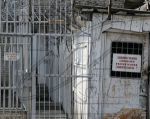05.08.2016 Effective complaint? Unavailable for prisoners
In Belarus, prisoners do not believe in the effectiveness of complaints against the prison authorities. This lack of confidence is reinforced by legislative prerequisites that are analyzed by Pavel Sapelka, expert on penitentiary law. He also describes possible measures that could change the situation.
08.07.2016 Provision of safe conditions for certain categories of prisoners in Belarus
It is generally accepted that prisoners, regardless of the nature of their offense, can enjoy all the basic human rights. These include the right to the highest attainable standard of physical and mental health.
13.05.2016 No changes in public control over places of detention
Lawyer of the Human Rights Center "Viasna" Pavel Sapelka has analyzed the latest developments in monitoring places of detention in Belarus.
05.05.2016 What changes to be introduced in conditions of serving sentences of restriction freedom and imprisonment?
The National Assembly is preparing to adopt a law "On amendments and additions to the Criminal Executive Code of the Republic of Belarus". Its adoption is expected to draw a line, among other things, under determining the duration of short-term visits provided for prisoners. These changes have been analyzed by Pavel Sapelka, an expert on the prison system and lawyer of the HRC "Viasna".
02.03.2016 Viasna publishes report on monitoring places of detention in Belarus
The Human Rights Center “Viasna” has analyzed the situation in places of detention in Belarus and prepared a report on the results of monitoring in 2015.
18.02.2016 Creating separate colony with intolerable conditions of detention contrary to fundamental principles of international and national law
In accordance with Article 8 of the Criminal Executive Code, which enshrines the foundations of the legal status of convicted persons, the State guarantees the protection of the rights, freedoms and legitimate interests of convicts, provides the statutory conditions of application of punishments and other measures of criminal responsibility in relation to convicts, guarantees social justice, their social, legal and other protection.
12.01.2016 Prisoner attempts to kill self to protest torture
Yahor Pratasenia, 20, has committed a suicide attempt in the Žodzina jail to protest torture and abuse during the investigation and detention, according to Larysa Zhyhar, representative of the public initiative “Mothers’ Movement 328”.
07.12.2015 Legal proceedings in jail death case deadlocked
Despite the fact that the judges have overturned a number of decisions by the Svietlahorsk district office of the Investigative Committee, they generally support the investigation in the death of Aliaksandr Akulich, disregarding the undeniable arguments of human rights defenders.
25.11.2015 Closed medical institutions: Treatment or violence?
Every year, Belarusian courts consider about 700 lawsuits asking for forced treatment of citizens, 90% of which are met. Meanwhile, the patients of closed institutions keep writing to human rights defenders with complaints of ill-treatment. Pavel Sapelka, who specializes in analyzing the country’s penal system, concludes that the current legal regulation in this area is insufficient. His findings are based on a detailed analysis of legislation and practice with respect to special hospitals.
20.08.2015 Poisoning with bleach: Torture or ‘violation of sanitary norms”?
The Investigative Committee of Belarus has quashed a decision not to institute criminal proceedings against employees of the Mahilioŭ-based penal colony No. 15, who tortured prisoner Piotr Kuchura with bleach during his confinement in the punishment cell. However, when notifying the convict, a representative of the Investigative Committee writes about a ‘violation of sanitary norms’.
24.07.2015 Women in Prisons: Violations of Labor and Social Rights
Andrew Coyle, the author of a book entitled “A Human Rights Approach to Prison Management: Handbook for Prison Staff” (published by the International Centre for Prison Studies), argues that the rate of female prisoners in all prisons of the world varies between 2% and 8% of the total number of inmates. The situation of women prisoners is very different from that of men and so it should receive a separate analysis.
26.06.2015 Pavel Sapelka: Torture is often a hidden problem in Belarus
In 1997, the UN General Assembly proclaimed 26 June as the International Day in Support of Victims of Torture. On this day, international and national human rights organizations remind once again that “no exceptional circumstances whatsoever, whether a state of war or a threat of war, internal political instability or any other public emergency, may be invoked as a justification of torture.”
23.06.2015 Kuchura case: Mahilioŭ authorities go blind to complaints
In a continuous attempt to hide the fact of torture in the Mahilioŭ-based penal colony No. 15, reported by the wife of prisoner Piotr Kuchura, officials of the Investigative Committee and the Prosecutor’s Office brazenly distort the facts in their formal replies to her complaints, arguing that there was no criminal incident in the colony at all.
24.04.2015 Interior Ministry uses family visits as means of repression
Comparing prison rules in Belarus and those in other former Soviet countries, Pavel Sapelka, an expert in the Belarusian prison system, came to the conclusion that this comparison is not in favor of Belarusian prisoners.
07.04.2015 What diseases free prisoners from punishment?
What is the list of diseases giving the right to such a judgment? Is it possible to challenge such a verdict? What is the probability of committing a new crime by a person exempt because of having a disease?





























